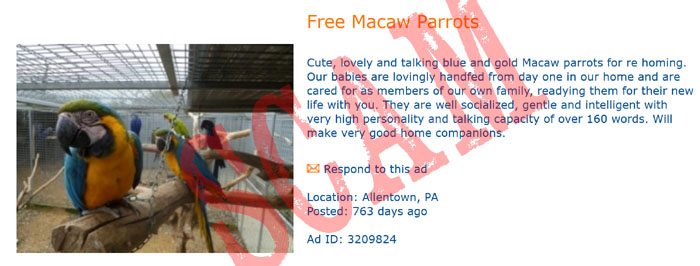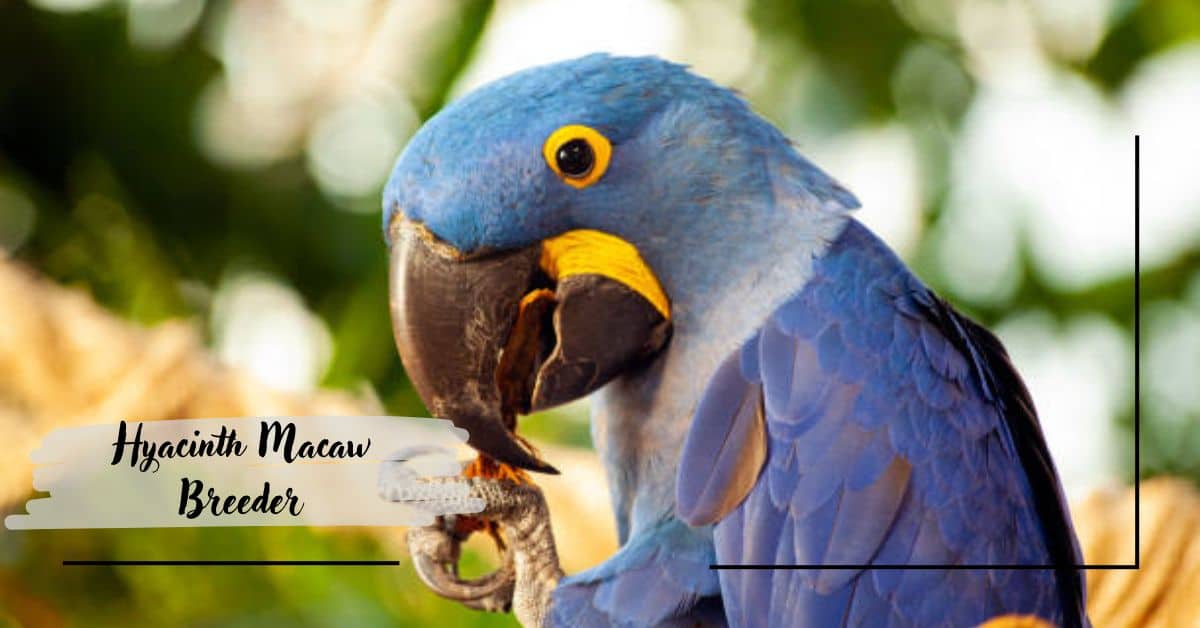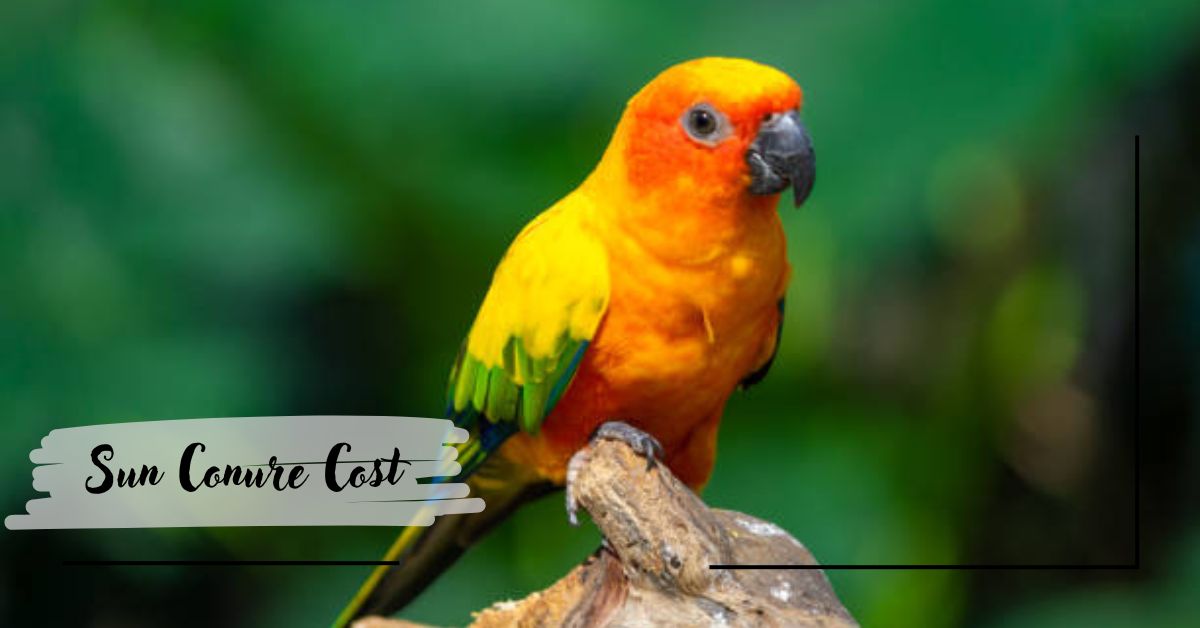Grey parrot scams happen when fake sellers try to trick you into buying birds that don’t exist. They often use fake pictures and stories to get your money, asking for payment for things like shipping. To avoid getting scammed, always check the seller’s reputation, and be careful if a deal seems too good to be true. Look for warning signs like not being clear about details and asking for strange payment methods. If you see suspicious ads, report them to help protect yourself and others from these scams.
How Do Grey Parrot Scams Work?
Grey parrot scams usually work by creating a false sense of urgency and excitement. Scammers use fake websites, ads, or social media pages that appear legitimate to advertise parrots at very low prices. They may ask for advance payments, promising to ship the bird after receiving the money. Once the buyer pays, the scammer either disappears or continues to demand more money for fake reasons like shipping fees, insurance, or medical expenses. Often, there is no parrot at all, and the scammer pockets the money without delivering anything.
Why Do Grey Parrot Scams Happen?
Grey parrot scams happen because of the high demand for African grey parrots. These birds are expensive and rare, which creates opportunities for scammers to exploit people who are looking for a deal or think they are helping a bird in need. Many buyers are not aware of how costly and regulated the process of adopting or buying exotic birds is, making them vulnerable to scams. Additionally, the rise of online marketplaces and social media has made it easier for scammers to reach potential victims.
How Do Scammers Execute Grey Parrot Scams?
Scammers execute grey parrot scams by creating fake ads, profiles, and even entire websites that showcase parrots for sale. They might steal photos of real grey parrots from legitimate breeders or pet owners to make their posts look authentic. After contacting an interested buyer, the scammer asks for payment upfront, often using untraceable methods like wire transfers, gift cards, or cryptocurrency. They might also make excuses for why the buyer can’t visit or meet the parrot in person. Once the money is transferred, the scammer either vanishes or continues to ask for more payments under false pretenses.

What Tactics and Techniques Do Scammers Use in Grey Parrot Scams?
- Low Prices: Offering the parrots at prices far below the market value to tempt buyers into acting quickly.
- Emotional Manipulation: Using stories about the parrot being distressed, needing a home urgently, or being a rescue bird to play on the buyer’s emotions.
- Fake Photos and Videos: Stealing images and videos of real African grey parrots from breeders or pet owners to make their offer look genuine.
- Pressure Sales: Telling buyers that others are interested in the parrot or that the bird needs to be sold quickly to push for a fast decision.
- Untraceable Payments: Requesting money through methods that are hard to trace, such as wire transfers or prepaid gift cards.
Which Elements Do Scammers Use for Grey Parrot Scams?
1. Fake Websites and Ads:
Scammers create websites or online ads that appear legitimate, offering African grey parrots at prices lower than the market value. These websites often feature stolen images or descriptions to seem trustworthy.
2. Unusually Low Prices:
Scammers may offer African grey parrots at a fraction of their real price, enticing people to make a quick purchase. In reality, African grey parrots are expensive due to their rarity and the costs of proper breeding and care.
3. No Actual Birds:
In many cases, there are no birds at all. Once the scammer receives payment, they may disappear or come up with excuses as to why the bird cannot be delivered, often asking for more money for shipping, vaccinations, or permits.
4. Stolen Media:
Using images or videos of African grey parrots from legitimate sources without permission.
5. Fake Documentation:
Scammers might offer fake veterinary reports, breeding certificates, or shipping details to appear credible.
6. Unverified Contact Information:
Providing phone numbers or email addresses that are hard to verify and may belong to burner accounts or temporary numbers.
7. Payment Requests:
Scammers frequently request money through untraceable methods such as wire transfers, gift cards, or cryptocurrency. These methods make it almost impossible to recover the funds.
8. Fake Testimonials and Reviews:
Fraudulent websites often use fake reviews, testimonials, and even fabricated stories of satisfied customers to build trust. In some cases, scammers will create entire social media profiles filled with pictures of grey parrots to look convincing.
9. Pressure Tactics:
Scammers may rush buyers by claiming the bird is rare or that other potential buyers are interested. They pressure the victim into making a decision quickly without thorough verification.
10. Unlicensed Breeders:
Some scammers pose as unlicensed breeders, which may seem harmless at first but could indicate illegal activity or poor conditions for the birds.
Signs and Red Flags of a Grey Parrot Scams:
Several red flags can help identify a grey parrot scam:
- Too-Good-to-Be-True Prices: African grey parrots are expensive, and a price that is much lower than usual is often a sign of a scam.
- Unusual Payment Methods: Scammers often ask for payments via wire transfers, gift cards, or other untraceable methods.
- No In-Person Meetings: If the seller refuses to meet in person or allows the buyer to see the parrot before purchasing, this is a red flag.
- Poor Communication: Scammers may avoid answering specific questions about the parrot’s health, history, or breeding status.
- Urgency and Pressure: Being told to make a quick decision because someone else is interested or that the bird must be sold urgently can be a warning sign.

How to Identify a Grey Parrot Scams?
Research the Seller:
Look up the seller’s information, including their business or personal profile. Legitimate breeders often have reviews or references you can check.
Request Detailed Information:
Ask for specifics like health records, breeding history, and the bird’s background. Scammers may struggle to provide this level of detail.
Reverse Image Search:
Use a reverse image search on the photos provided to see if they have been stolen from other websites.
Avoid Untraceable Payments:
Legitimate sellers should accept traceable, secure payment methods like credit cards, which offer buyer protection.
Tips for Spot Legitimate Sites of Grey Parrot Scams:
Verify Credentials:
Make sure the seller has proper credentials, such as breeding licenses or registration with reputable parrot organizations.
Research Market Prices:
Know the average cost of an African grey parrot to avoid being lured by offers that seem too cheap.
Ask for References:
Ask the seller for references or customer reviews, and check to see if they have a presence in parrot-keeping communities or forums.
Use Secure Payment Methods:
Only use payment methods that provide buyer protection, like credit cards or escrow services.
Meet the Parrot in Person:
If possible, visit the parrot before making any payments to ensure the bird and seller are real.
Trust Your Instincts:
If something feels off, like the seller avoiding your questions or pushing for fast payments, it’s better to walk away.
Be Avoided – Grey Parrot Scams Alert!

This is likely one of the Facebook pages that are doing scams with people with fake information and appearance. Be cautious, avoid engaging with pages like this, and report them immediately to prevent others from falling victim to potential fraud.
Real Stories and Examples of Grey Parrot Scams:

Jamieleigh, a parrot trainer, shared her experience with online parrot-selling scams. Scammers used her pictures to deceive buyers, like Wendy, a lady from Canada. Wendy thought she was buying a cockatiel, but the scammer used photos of Jamieleigh’s birds and kept asking for more money.
Wendy sent $110 for shipping, and then the scammer asked for more under fake pretenses, adding new fees. To avoid scams like these, always verify the seller, ask for recent photos, and avoid suspicious websites like these:
- http://www.hoobly.com/
- http://www.kijiji.com/
- http://www.oodle.com/
What Should I Do If Had Fallen A Scam?
If you’ve been scammed, don’t worry; there are steps you can take. First, stop talking to the scammer right away. Then, tell your local police about what happened and report the scam on the website where you found it. If you sent money, contact your bank or payment service quickly to try to get it back.
Also, change the passwords for your online accounts, especially if you shared any personal information. Keep an eye on your bank and credit accounts for anything strange. You might want to freeze your credit to stop anyone from using your information. Finally, learn about common scams to help protect yourself in the future. Taking these actions can help you feel safer and prevent future scams.
Frequently Asked Questions About Grey Parrot Scams:
How do I know if my bird breeder is legit?
Look for breeders with good reviews and recommendations. A legit breeder will be open to questions, allow you to visit their facility, and provide health records for their birds.
What should I know before buying an African grey parrot?
Research the care needs of African grey parrots, including their diet, social needs, and lifespan. Make sure you have the time and resources to care for them properly.
How much is a grey parrot worth?
The price of a grey parrot can vary widely, usually ranging from $1,000 to $3,000, depending on their age, health, and breeding.
Are birds and parrots for sale legit?
To determine if a seller is legit, check for reviews, their return policy, and if they provide health guarantees. Always be cautious of deals that seem too good to be true.
How do you tell if a breeder is scamming you?
Signs of a scam include refusing to meet in person, asking for unusual payment methods, or being secretive about their breeding practices. Trust your instincts if something feels off.
Is African Grey Parrot Farm legit?
Research the farm online for reviews and ratings. A legit farm should have a professional website, positive feedback, and be willing to answer your questions about their birds.
Conclusion:
Staying aware of grey parrot scams is crucial for anyone looking to buy a parrot. Always research sellers, verify their legitimacy, and trust your instincts if something feels off. By knowing the signs of scams and taking precautions, you can protect yourself and ensure a safe, happy experience when welcoming a grey parrot into your home. Remember, it’s always better to be safe than sorry when it comes to your new feathered friend.









